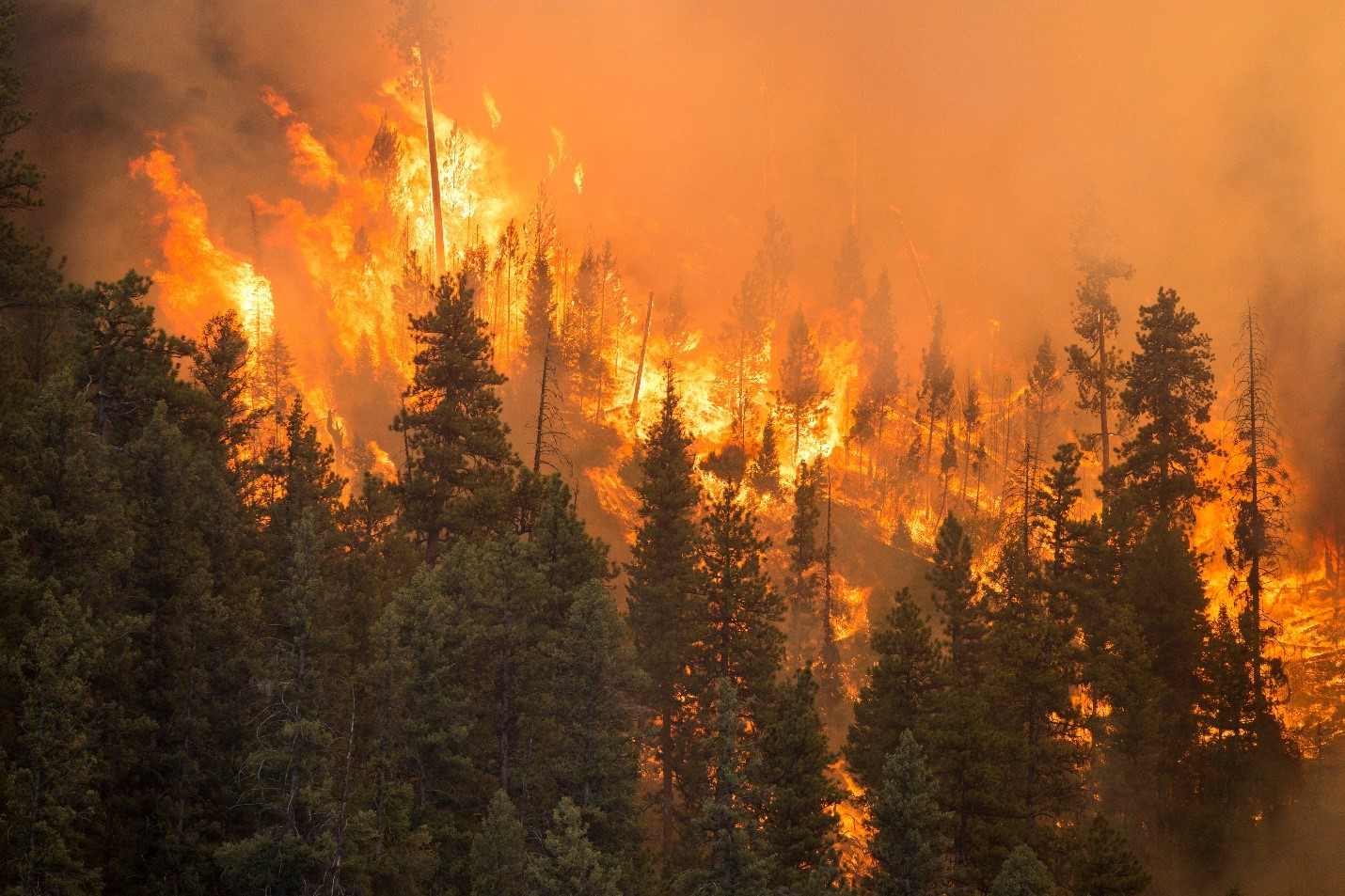The Benefits of Wildfires: A Comprehensive Analysis
Wildfires have long been viewed as destructive and devastating events, often associated with loss of life and property. However, it is important to recognize that wildfires also have various benefits that contribute to the overall health and functioning of ecosystems. In this article, we will delve into the positive aspects of wildfires and shed light on their importance in maintaining ecological balance.
Regeneration of Ecosystems
One of the significant benefits of wildfires is their role in the regeneration of ecosystems. Wildfires clear out dense vegetation, such as dead trees, shrubs, and undergrowth, creating space for new growth. The intense heat of the fire breaks down organic matter, releasing essential nutrients into the soil. This nutrient-rich ash acts as a natural fertilizer, promoting the growth of new plants and rejuvenating the ecosystem.
Biodiversity Enhancement
Wildfires play a crucial role in enhancing biodiversity within ecosystems. Certain plant species have evolved to be fire-dependent, meaning their seeds remain dormant until exposed to the heat of a wildfire. These plants, known as pyrophytic plants, rely on wildfires to trigger the germination process. By promoting the growth of these fire-adapted species, wildfires contribute to the overall diversity and resilience of the ecosystem.
Control of Invasive Species
Invasive species pose a significant threat to native flora and fauna, often outcompeting them for resources. Wildfires can help control the spread of invasive species by reducing their population and limiting their ability to establish dominance. Native species, on the other hand, have evolved alongside wildfires and are better adapted to withstand and recover from their effects. Thus, wildfires can act as a natural mechanism for maintaining the balance between native and invasive species.
Forest Health and Disease Prevention
Contrary to popular belief, wildfires can contribute to the overall health of forests. They help to remove diseased and weakened trees, preventing the spread of pests and diseases. By eliminating these susceptible trees, wildfires promote the growth of healthier vegetation, making the forest more resilient to future threats. Additionally, the heat of the fire can kill off harmful pathogens and insects, reducing the risk of outbreaks and improving the overall health of the ecosystem.
Fire-Adapted Ecosystems
Many ecosystems around the world have evolved to be fire-adapted, meaning they are dependent on regular wildfires for their survival. These fire-adapted ecosystems, such as certain grasslands and chaparral regions, have plants that are specifically adapted to thrive in fire-prone environments. Without periodic wildfires, these ecosystems would suffer from a lack of natural disturbances, leading to imbalances and a potential decline in biodiversity.

While wildfires can undoubtedly cause destruction and pose risks to human lives and property, it is essential to recognize the benefits they bring to ecosystems. Through the regeneration of ecosystems, enhancement of biodiversity, control of invasive species, promotion of forest health, and support of fire-adapted ecosystems, wildfires play a vital role in maintaining ecological balance. By understanding and appreciating the positive aspects of wildfires, we can work towards better managing and coexisting with these natural phenomena.
Frequently Asked Questions – Benefits of Wildfires
1. How can wildfires be beneficial?
Wildfires can help maintain ecosystem health by clearing out dead vegetation, promoting new growth, and recycling nutrients.
2. Do wildfires play a role in natural forest regeneration?
Yes, wildfires are an important natural process that can stimulate the germination of certain tree species and promote the growth of diverse plant communities.
3. Are there any benefits of wildfires for wildlife?
Yes, wildfires create diverse habitats that support a variety of wildlife species, including those that are adapted to fire-prone ecosystems.
4. Can wildfires help control invasive species?
Wildfires can reduce the dominance of invasive plant species and create opportunities for native species to recolonize an area.
5. Do wildfires have any positive effects on water resources?
Yes, wildfires can improve water quality by reducing sediment runoff and increasing water infiltration into the soil.
6. Are there any cultural benefits associated with wildfires?
Some indigenous cultures have traditional practices that involve the intentional use of fire, as they recognize its beneficial role in maintaining healthy ecosystems.
7. Can wildfires help prevent larger, more destructive fires in the future?
Yes, smaller wildfires can reduce the accumulation of flammable materials, making the landscape less susceptible to intense and destructive fires in the future.
8. Are there any economic benefits of wildfires?
Wildfires can have economic benefits, such as providing job opportunities in fire management and creating demand for forest restoration services.
9. Do wildfires contribute to the natural cycle of carbon in the environment?
Yes, wildfires release carbon stored in vegetation back into the atmosphere, contributing to the natural carbon cycle.
10. Can controlled burns be used as a management tool to mimic the benefits of wildfires?
Yes, controlled burns can be used to mimic the ecological benefits of wildfires while reducing the risks associated with uncontrolled wildfires.




